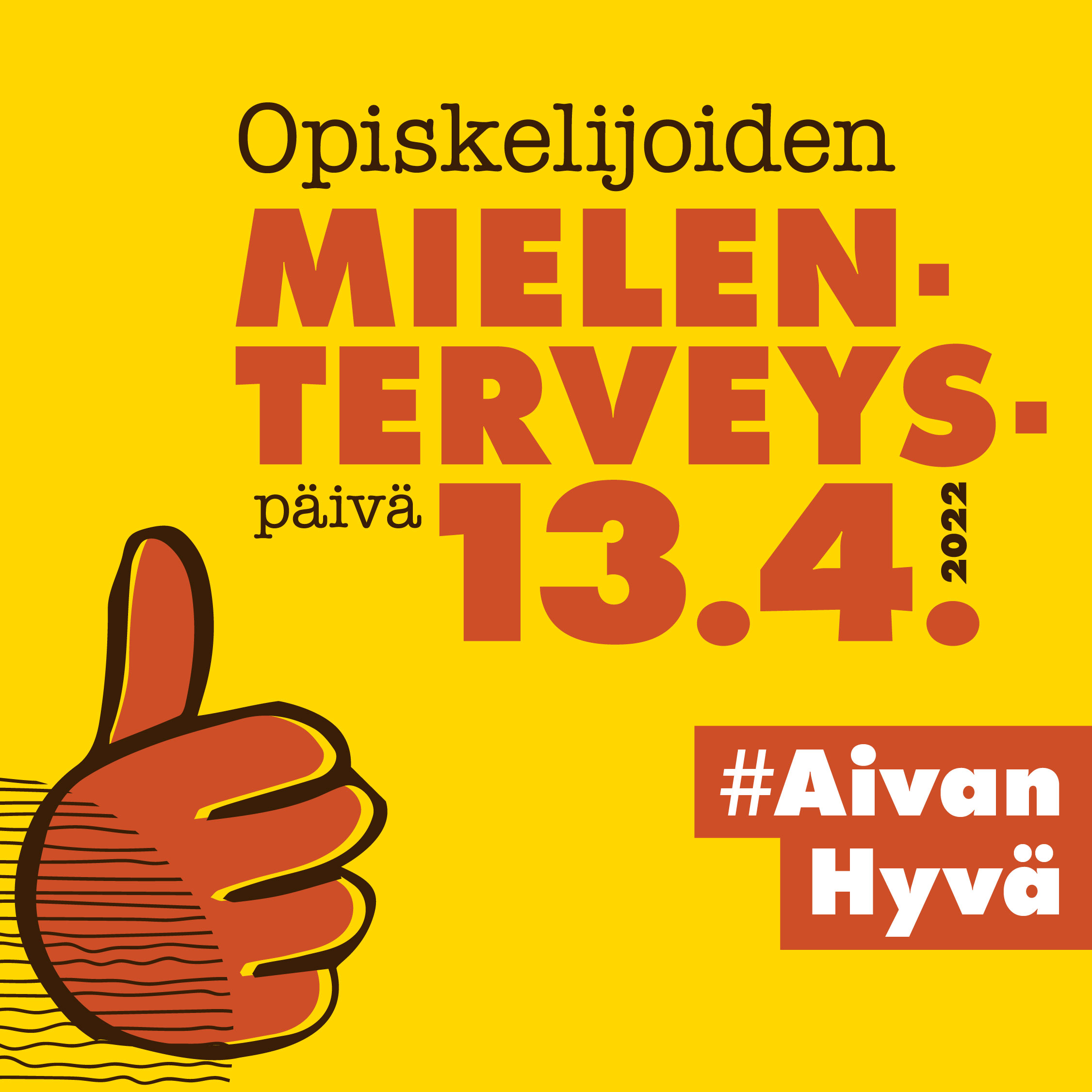Compassion doesn’t require much. Being emotionally present and mindfully encountering others are enough. Even small things matter, and they can do a lot of good.
How can you promote well-being in everyday life? Here are six questions that can get you off to a good start.
1) Do you really notice what happens around you?
How well do you rest? If we are continuously in a survival mode we are not able to notice what happens around us in the study community. Be actively present and available. Get to know your fellow students, including new faces. Notice especially those who seem to be left alone.
2) Put yourself in the other person’s position: what don’t you know?
You can strengthen your compassion by being actively aware of how much is left in the dark and how very little we know about each other. Especially in conflict or effusion situations it’s great if we can visit the other person’s point of view. You should actively try to see the matter or situation from the other person’s perspective.
3) Have courage to act – do you dare?
Each of us can promote concrete acts of compassion by being slightly more courageous than we would like. Notice another person, smile, say hi. Ask how your study pal is doing. Sit at the coffee table on campus for a moment even when you’re in a hurry.
4) Are you compassionate towards yourself?
The more compassionate you are towards yourself, the better you can show that you care about others. Try to catch yourself out in critical inner speech and change your tone. Take care of your energy levels and rest. You can’t give more than you have. Be kind to yourself.
5) Can you accept compassion?
When you receive empathy, thanks and praise, accept them. Don’t make yourself and the praiser smaller. Also accept offers of help. If you encounter challenges in your studies or everyday life, don’t remain alone but turn to others for help. The power of example is immense. By sharing your emotions you can be involved in changing the emotional atmosphere of your study community into a more open direction.
6) How do you act as a bystander?
You can also strengthen compassion in your study community as a bystander. When you see compassion or hear about empathy, do you tell about it to others? Do you strengthen the helper’s actions with your words? By doing this you can play your part in creating a more compassionate atmosphere and culture in study communities.
Sources:
Myötätunnon mullistava voima: Pessi, Martela ja Paakkanen, 2017.
About the theme: Nyyti Ry, https://www.nyyti.fi/en/students-mental-health-day/about-the-theme/
You can find more information about the theme from the websites of the project Myötätuntoa korkeakouluihin (The compassion in higher education -project).


